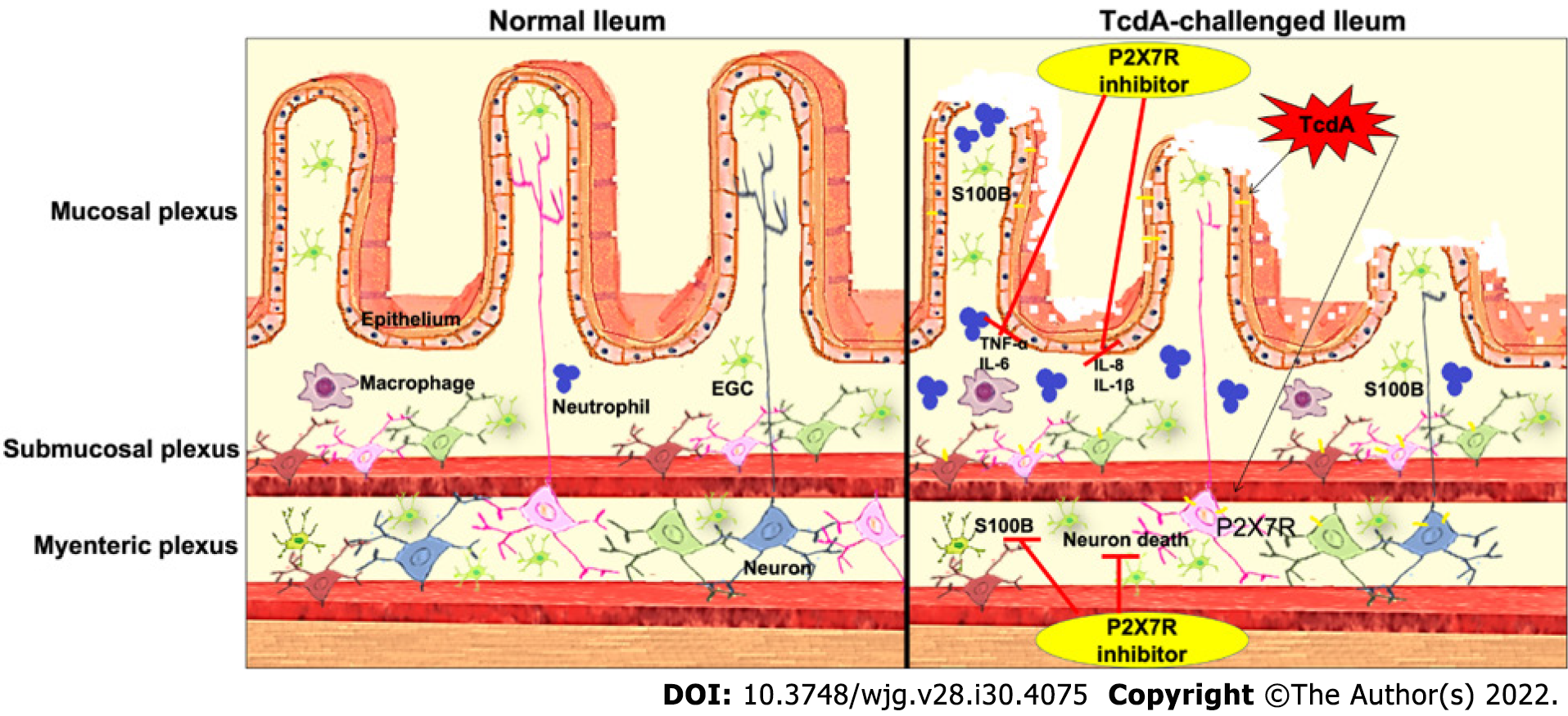Copyright
©The Author(s) 2022.
World J Gastroenterol. Aug 14, 2022; 28(30): 4075-4088
Published online Aug 14, 2022. doi: 10.3748/wjg.v28.i30.4075
Published online Aug 14, 2022. doi: 10.3748/wjg.v28.i30.4075
Figure 6 Scheme of the hypothetical role of the P2X7 receptor during Clostridioides difficile toxin A-induced ileitis.
Clostridioides difficile TcdA promotes epithelial damage and the upregulation of the P2X7 receptor in enteric neurons, intestinal epithelial cells, and immune cells. Once activated, the P2X7 receptor promotes the death of enteric neurons and the release of proinflammatory mediators by epithelial/immune cells [interleukin (IL)-1β, IL-6, keratinocyte chemoattractant, and tumor necrosis factor-α]. These proinflammatory mediators induce S100B synthesis by enteric glial cells. Blockade of the P2X7 receptor using a pharmacological approach attenuates these deleterious effects of TcdA. IL: Interleukin; TNF: Tumor necrosis factor; EGC: Enteric glial cell.
- Citation: Santos AAQA, Costa DVS, Foschetti DA, Duarte ASG, Martins CS, Soares PMG, Castelucci P, Brito GAC. P2X7 receptor blockade decreases inflammation, apoptosis, and enteric neuron loss during Clostridioides difficile toxin A-induced ileitis in mice. World J Gastroenterol 2022; 28(30): 4075-4088
- URL: https://www.wjgnet.com/1007-9327/full/v28/i30/4075.htm
- DOI: https://dx.doi.org/10.3748/wjg.v28.i30.4075









